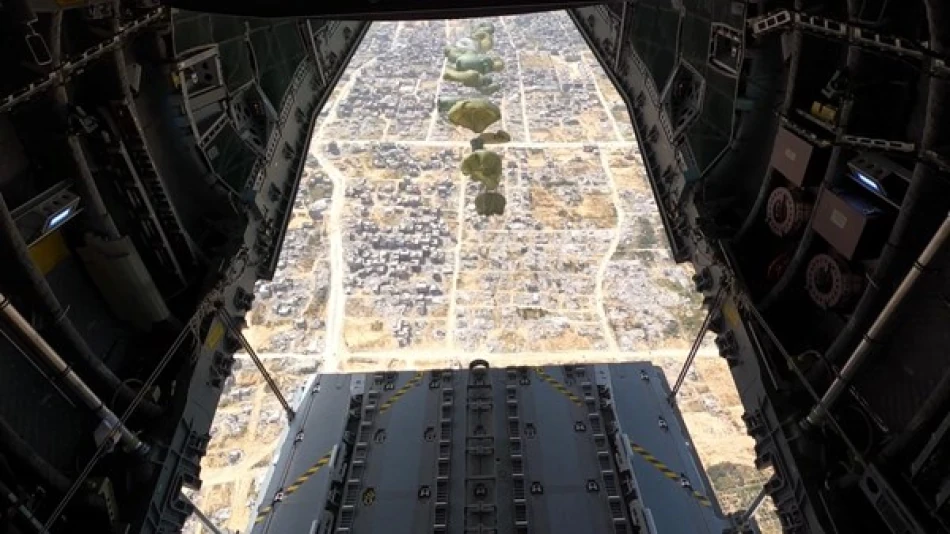
European Nations Prepare Humanitarian Air Bridge to Gaza
Europe Launches Coordinated Gaza Airlift as Humanitarian Crisis Deepens
Major European powers are mobilizing a multi-national air bridge to deliver emergency aid to Gaza, marking a significant escalation in international humanitarian intervention as the Palestinian enclave faces what the UN describes as "alarming levels" of malnutrition. The coordinated effort, led by Germany in partnership with Jordan, signals growing European frustration with traditional aid delivery mechanisms and represents the most substantial direct humanitarian response from the continent since the crisis began.
Germany Spearheads Multi-National Relief Operation
German Chancellor Friedrich Merz announced Monday that his country will establish an "air bridge for humanitarian aid" in collaboration with Jordan, specifically targeting populations facing severe nutritional deficits. The initiative represents a departure from Germany's typically cautious approach to Middle Eastern interventions, reflecting the gravity of the humanitarian situation.
Defense Minister Boris Pistorius will coordinate closely with France and Britain, both of which have committed to establishing similar air corridors for delivering food supplies and medical equipment. This tri-nation approach mirrors successful humanitarian operations in other conflict zones, including the Berlin Airlift model that proved effective during Cold War blockades.
Spain Commits to Immediate Action
Spain has moved beyond planning to concrete action, announcing it will airdrop 12 tons of food aid over Gaza this week. Prime Minister Pedro Sánchez declared that Spanish Air Force aircraft will conduct the operation Friday, launching from Jordanian territory.
"The famine in Gaza is a disgrace to all humanity, and stopping it is therefore a moral duty," Sánchez stated, reflecting the increasingly urgent tone European leaders are adopting toward the crisis.
Building on Previous Humanitarian Precedents
Spain's current initiative builds on its March 2024 operation, when it successfully delivered 26 tons of food supplies to Gaza through similar airdrop methods. This experience provides valuable operational knowledge for scaling up the current multi-national effort and suggests European nations are developing sustainable logistics capabilities for ongoing humanitarian intervention.
The use of Jordanian territory as a staging ground reflects the kingdom's strategic importance as a humanitarian hub and its willingness to facilitate international aid efforts despite regional political complexities.
Strategic Implications for International Aid Policy
This coordinated European response represents a significant shift in humanitarian aid delivery, moving away from ground-based distribution networks that have proven vulnerable to disruption. The air bridge model, while more expensive and logistically complex, offers greater reliability and political neutrality.
The operation also demonstrates European unity on humanitarian issues despite broader geopolitical divisions, potentially setting precedents for future crisis responses in other conflict zones. The involvement of major EU powers suggests this initiative has substantial political backing and financial resources.
Operational Challenges and Long-term Sustainability
While airdrops provide immediate relief, they face inherent limitations in terms of volume, precision, and cost-effectiveness compared to ground-based distribution. The success of this European initiative will likely depend on its ability to complement rather than replace other aid mechanisms, and its sustainability will be tested by the duration of the crisis and continued political will from participating nations.
The coordination with Jordan also highlights the importance of regional partnerships in humanitarian operations, potentially serving as a model for future international relief efforts in the Middle East and beyond.
Most Viewed News

 Layla Al Mansoori
Layla Al Mansoori






